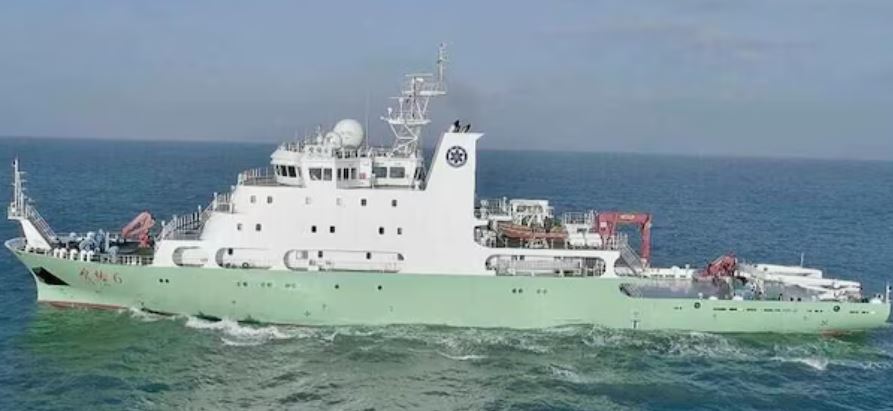Sri Lanka Reopens Ports to Research Vessels
Sri Lanka is set to resume permitting foreign research vessels to access its ports from the upcoming year, Foreign Minister Ali Sabry revealed during his visit to Tokyo. This policy shift comes after a ban was imposed in January 2024, following concerns raised by India and the United States regarding the visits of Chinese research vessels.
Balancing Act: Sovereignty and Collaboration
The decision to lift the ban reflects Sri Lanka’s determination to maintain its sovereignty while fostering international scientific collaboration. In an interview with NHK World, Mr. Sabry emphasized the importance of applying uniform rules to all nations, stating, “We cannot have different rules for different countries and only block China.”
Geopolitical Chessboard: Ports as Strategic Assets
Sri Lanka’s ports have become focal points of geopolitical maneuvering, attracting investments and partnerships from major powers. China’s recent investment in a logistics complex at the Colombo Port and the involvement of India, the U.S., and Japan in maritime security initiatives highlight the strategic significance of these maritime gateways.
Quadrilateral Security Dialogue (QSD) and Countering Influence
The Quad, comprising India, the U.S., Japan, and Australia, has focused on countering China’s growing influence in the Indian Ocean region. Initiatives like the Colombo Security Conclave and investments in maritime infrastructure underscore the Quad’s commitment to maintaining a stable and secure maritime environment.
U.S. Presence and Technological Collaboration
The U.S. has also expanded its footprint in Sri Lanka’s ports, investing in the West Container Terminal project and fostering technical collaboration through agreements like the recent pact between the Sri Lanka Ports Authority and the Virginia Ports Authority.
Japan’s Contribution to Oceanographic Research
Japan’s commitment to Sri Lanka’s scientific advancement is evident in its plan to provide a vessel equipped with underwater sonar. This technology will enhance Sri Lanka’s oceanographic survey capabilities and facilitate the collection of valuable data for commercial exploitation.
Key Takeaways:
| Key Learning Points | Description |
|---|---|
| Ban Lifted on Research Vessels | Sri Lanka will resume allowing foreign research vessels to access its ports from next year. |
| Balancing Geopolitical Interests | The decision aims to strike a balance between maintaining sovereignty and fostering international collaboration. |
| Ports as Strategic Assets | Sri Lanka’s ports are at the center of geopolitical maneuvering, attracting investments and partnerships. |
| Quad and Maritime Security | The Quad is focused on countering China’s influence in the Indian Ocean through security initiatives. |
| U.S. and Japan’s Engagement | The U.S. and Japan are expanding their presence in Sri Lanka’s ports through investments and collaborations. |
| Oceanographic Research Boost | Japan plans to provide a vessel equipped with underwater sonar to enhance Sri Lanka’s survey capabilities. |
Soumya Smruti Sahoo is a seasoned journalist with extensive experience in both international and Indian news writing. With a sharp analytical mind and a dedication to uncovering the truth, Soumya has built a reputation for delivering in-depth, well-researched articles that provide readers with a clear understanding of complex global and domestic issues. Her work reflects a deep commitment to journalistic integrity, making her a trusted source for accurate and insightful news coverage.



